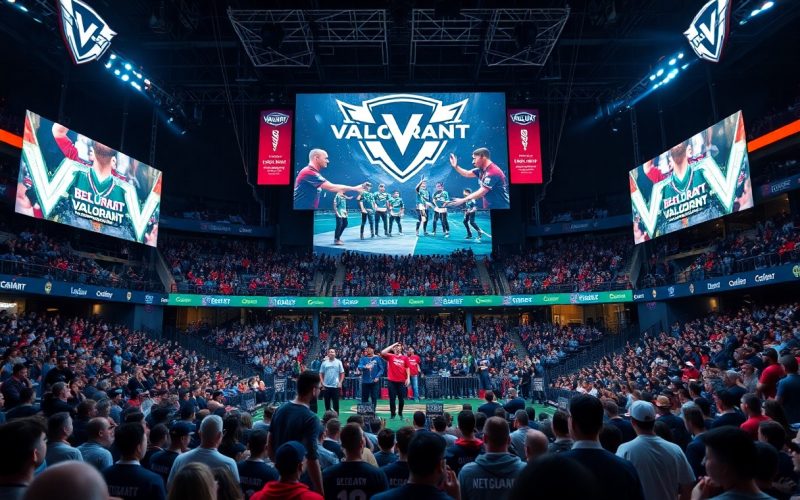Many players and investors are drawn to the allure of franchising in the competitive landscape of Valorant, yet this path can pose significant financial risks. The high costs associated with acquiring a franchise, along with ongoing operational expenses, can quickly escalate beyond initial expectations. Additionally, the unpredictable nature of esports performance and shifting market dynamics can lead to substantial losses for those involved. Understanding these potential pitfalls is important for anyone considering jumping into the franchising scene, as financial ruin may lurk beneath the surface of this seemingly promising opportunity.
Understanding Franchising in Valorant
While franchising in Valorant is designed to create a standardized competitive environment, it introduces significant risks for investors and teams alike. This system aims to ensure consistency in gameplay and fan engagement but can also lead to financial pressures that may not be sustainable for all parties involved.
Overview of Valorant Franchising
Around the globe, Valorant’s franchising model has attracted substantial interest in the esports community. By offering stable slots with guaranteed revenue streams, this system is intended to elevate the competitive landscape. However, the high initial investment and ongoing costs can strain teams financially, making it vital to assess the long-term viability of such commitments.
The Economic Model of Franchising
Valorant’s franchising model relies on a structured economic framework that includes team franchising fees, revenue sharing, and sponsorship deals. While this system is intended to provide a stable income for teams and encourage investment in professional play, it may inadvertently create financial burdens that can lead to challenges for involved organizations.
Understanding the economic model of franchising in Valorant is vital for potential investors. The model typically requires a significant buy-in from teams, which can range into the millions, accompanied by ongoing operational costs. Revenue sharing mechanisms, such as ticket sales and sponsorships, may not generate sufficient income to offset these expenses, particularly for newly formed or less popular teams. Failure to meet profitability expectations can lead to financial strain and, ultimately, the collapse of aspiring franchises.
Financial Implications of Franchising
If you are considering entering the world of franchising in Valorant, it’s vital to evaluate the financial repercussions it entails. Many aspiring teams underestimate the economic commitment required, leading to unmanageable debt and financial strain. From initial investments to ongoing costs, the financial landscape of franchising can be perilous for those unprepared.
Initial Investment and Costs
Around the world of esports, franchising comes with hefty entry fees, often reaching millions. These upfront investments usually cover team branding, player salaries, and necessary infrastructure, which can drain resources quickly, especially for new organizations without established revenue streams.
Ongoing Financial Commitments
Above the initial costs, ongoing financial responsibilities can add up significantly. Expenses such as player contracts, coaching staff, and operational costs often persistently chip away at the budget, demanding consistent revenue to remain sustainable.
Understanding the commitments involved in franchising is vital for long-term stability. Beyond monthly salaries, teams often face additional expenses, including travel, accommodation, and tournament entry fees. This continuous financial outlay means organizations must generate steady income through sponsorships, merchandise sales, and streaming, or risk facing severe financial hardship and potentially bankruptcy.
Risks Associated with Franchise Ownership
One of the significant risks of franchise ownership in Valorant is the dependence on both performance and market conditions. Franchisees must navigate a highly competitive environment where individual efforts can be significantly impacted by the larger economic and gaming trends. The costs associated with starting and maintaining a franchise can escalate quickly, and failures can lead to considerable financial distress.
Market Volatility
Among the key challenges faced by franchise owners is the volatility of the gaming market. Trends can shift dramatically within months, leading to changing player preferences and income streams. High competition means that a franchise that performs well today may struggle tomorrow as new games or strategies emerge, requiring constant adaptation and investment to keep up.
Performance Metrics and Accountability
Below the surface of glamour, franchise ownership also comes with stringent performance metrics and accountability that can be demanding. Franchisees are often required to meet specific benchmarks related to revenue, player engagement, and tournament placements. These metrics dictate not only operational practices but also financial viability.
In addition to the financial implications, the pressure of meeting established performance metrics can lead to stress and burnout among franchise owners. Many find themselves over-investing in training or marketing to achieve targets, which can lead to a cycle of debt. Without a clear understanding of these responsibilities, aspiring owners may underestimate the effort needed to sustain their franchise amidst the rapid changes within the gaming landscape.
Case Studies of Financial Ruin
Notably, numerous franchises in Valorant have faced significant financial setbacks, highlighting the risks involved. Key examples include:
- Team A: Invested $2 million in franchise fees but generated only $500,000 in revenue during the first year.
- Team B: After two unsuccessful seasons, accumulated losses reached $3 million, causing bankruptcy.
- Team C: Spent over $1 million on player salaries while averaging only 5,000 viewers per match.
- Team D: Exit from the league after failing to secure sponsorships, resulting in a $1.5 million loss.
Analysis of Failed Franchises
Besides the monetary drain, many failed franchises exhibit poor management and lack of market understanding. High expectations based on initial investment often led to inadequate readiness for audience engagement, showcasing an imbalance between financial projections and actual performance.
Lessons Learned from Failures
Failures in the Valorant franchise scene reveal important insights for potential investors. Understanding market dynamics and building a sustainable team structure are imperative.
Lessons from these failures emphasize the necessity of thorough market research and realistic financial planning. Many franchises underestimated expenses while overestimating potential earnings. Effective management of resources, strategic partnerships, and fostering fan engagement can mitigate risks. Establishing a clear brand identity and leveraging social media are vital for attracting sponsors and keeping a competitive edge, ultimately reducing the chance of financial ruin.
Alternative Approaches to Success in Esports
For aspiring esports teams, exploring alternative success strategies beyond franchising can lead to more sustainable growth. Emphasizing grassroots engagement, self-managed teams, and strong community ties can enhance visibility and attract dedicated fans. By prioritizing organic development and talent cultivation over expensive franchise fees, teams can create a solid foundation for long-term success in the competitive gaming landscape.
Self-Managed Teams vs. Franchises
At the core of esports’ evolution, self-managed teams have emerged as a viable alternative to expensive franchise structures. These teams foster a sense of camaraderie and collaboration, enabling players to develop synergistic gameplay without the burdensome costs associated with franchise entry. In contrast to the rigid frameworks of franchised teams, self-managed squads can adapt more freely to new challenges, often resulting in innovative strategies and game styles.
The Importance of Sponsorships and Partnerships
Before submerging into franchise commitments, many esports teams should focus on building strong sponsorships and partnerships to generate revenue and enhance their market presence. A well-structured sponsor relationship can provide financial support, equipment, and promotional resources that are vital for success without the high stakes that come with franchising.
Consequently, establishing meaningful connections with brands and businesses can significantly impact an esports team’s trajectory. Through sponsorships, teams gain access to valuable resources that can enhance training, marketing, and outreach efforts, allowing them to gain traction in a highly competitive environment. By prioritizing these partnerships over franchise models, teams may find themselves not only financially secure but also more agile in navigating the ever-evolving esports landscape.
Recommendations for Aspiring Franchise Owners
All aspiring franchise owners should approach their investment with careful consideration and strategic planning. Engaging in a detailed analysis of the franchising landscape, market trends, and competition can provide valuable insights. Additionally, developing a robust business plan that incorporates various scenarios can help mitigate risks associated with this financially demanding venture.
Conducting Thorough Research
Along with general research, investigate the franchise’s history, its brand reputation, and the support it offers to franchisees. Understanding the operational requirements, marketing strategies, and training programs in place is necessary to gauge whether the franchise aligns with your goals and resources. Speak to current owners for firsthand experiences and insights.
Financial Planning and Contingency Strategies
Financial planning is an integral part of aspiring to join a franchise, requiring a deep understanding of initial costs, ongoing fees, and potential revenue streams. Develop contingency strategies that prepare for unexpected challenges such as market shifts or operational setbacks.
Even the best-laid plans can falter, making it necessary to have a safety net in place. Set aside an emergency fund to cover operational costs for at least six months and ensure that financing options are well-researched. Explore different funding methods, including loans, grants, or investment pools, to ensure you have enough capital to sustain your franchise through fluctuations in performance. Prioritize keeping your financial health robust to prevent potential pitfalls that could lead to significant losses.
Final Words
As a reminder, franchising in Valorant involves significant financial commitments and risk exposure that can lead to financial ruin for investors. The hefty buy-in fees, along with ongoing operational costs and the unpredictable nature of the esports market, may outpace potential revenue. Additionally, the high level of competition and reliance on sponsorships can further amplify risk. Stakeholders should thoroughly assess market conditions and their financial capacity before pursuing franchising opportunities in this volatile environment.
Q: What are the financial risks associated with franchising in Valorant?
A: Franchising in Valorant can entail significant financial risks due to high initial investment costs. Teams must secure a franchise fee, which can be substantial, alongside ongoing expenses such as player salaries, operational costs, and marketing. If the franchise does not generate sufficient revenue through sponsorships, merchandise sales, or match winnings, organizations can quickly find themselves in a financially precarious situation. This risk is compounded by the volatile nature of the esports industry, where audience interest can fluctuate, directly impacting revenue streams.
Q: How can the lack of a player base impact a franchise’s financial stability?
A: A franchise’s financial stability is heavily dependent on its fan engagement and viewer base. If a given franchise fails to attract a dedicated audience, it may struggle to secure sponsorship deals or generate ticket sales for events. This lack of support can lead to diminished revenue, making it challenging for the organization to cover expenses. In the competitive landscape of esports, franchises that can’t establish a strong following may face declines in profitability, potentially leading to financial ruin.
Q: What role does team performance play in the financial success of Valorant franchises?
A: Team performance is pivotal to the financial success of Valorant franchises. A team that consistently performs poorly can deter fans, leading to reduced merchandise sales and diminished interest in watching matches. This directly affects revenue from various sources, including broadcasting rights and sponsorships. Conversely, franchises that succeed tend to draw in more viewership and financial backing. Thus, a lack of competitive success may not only lead to immediate financial losses but also affect long-term sustainability, resulting in potential financial downfall for the organization.







